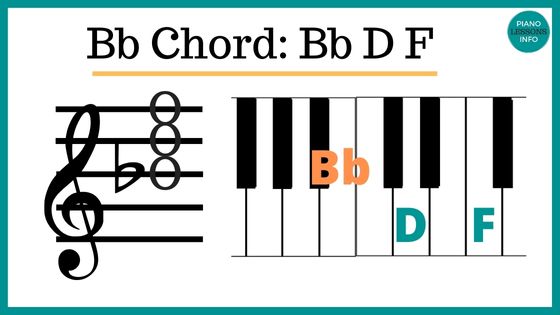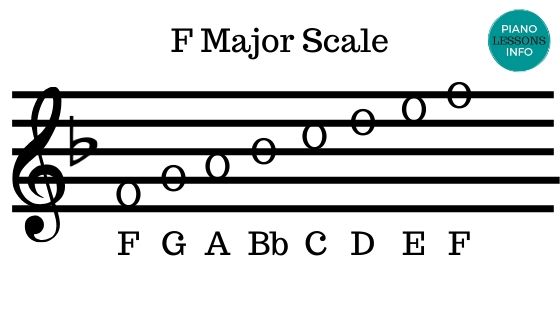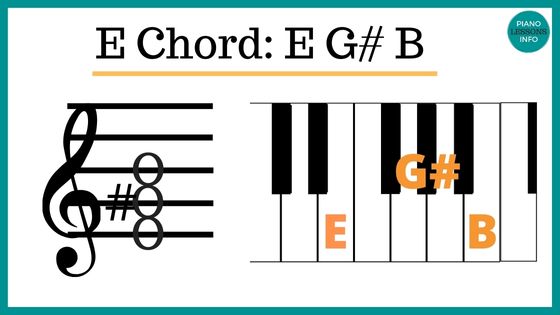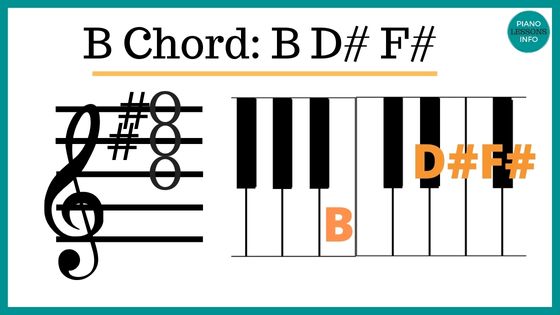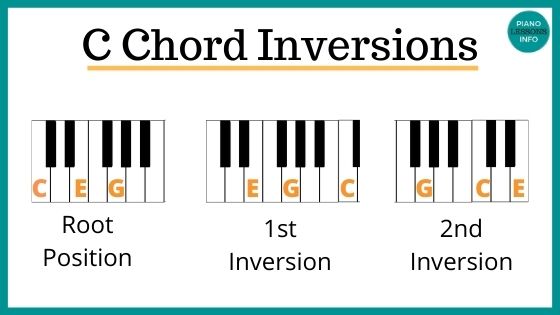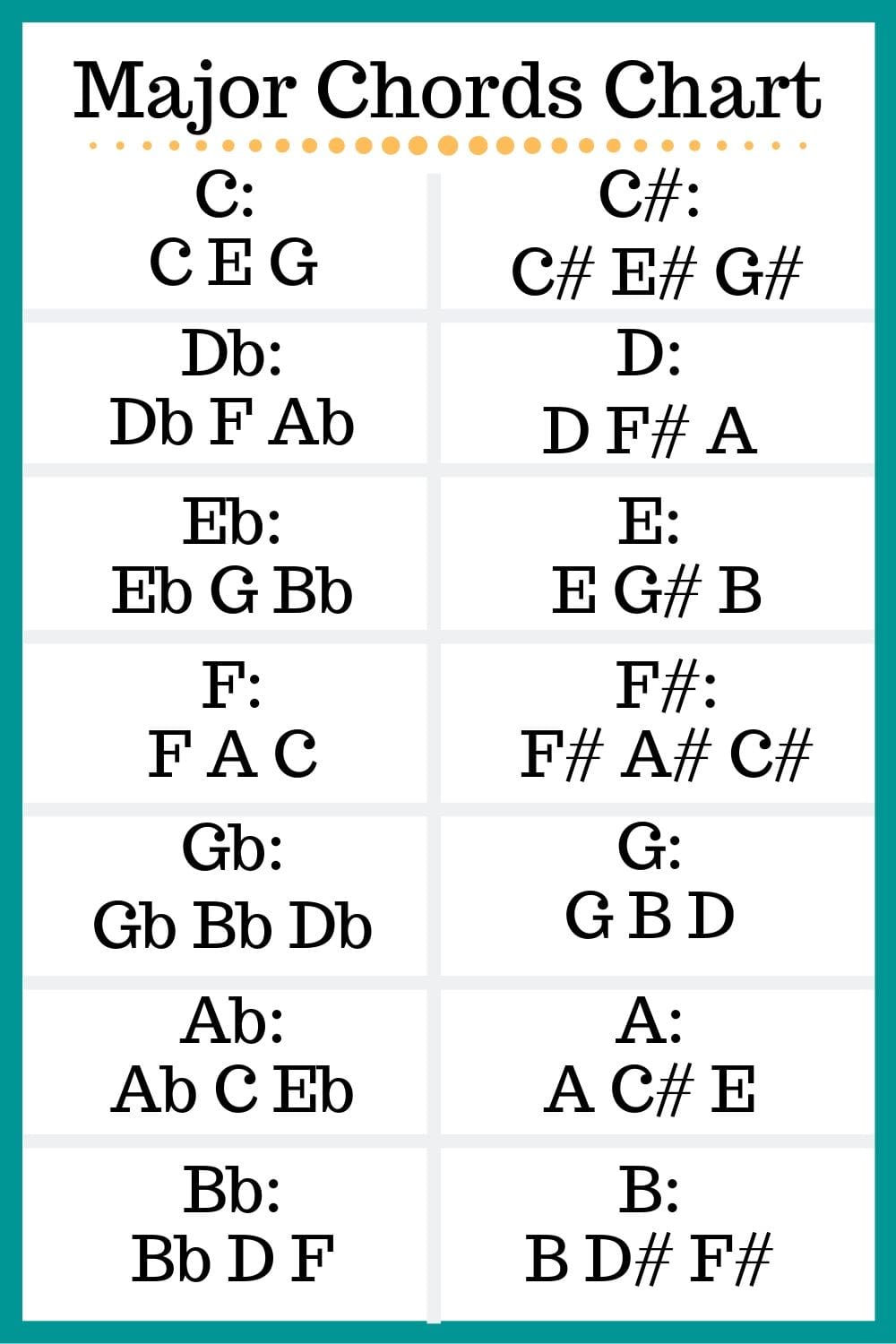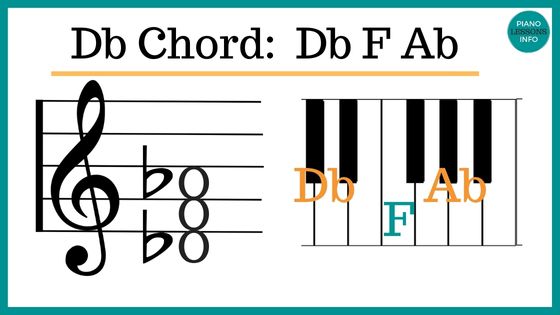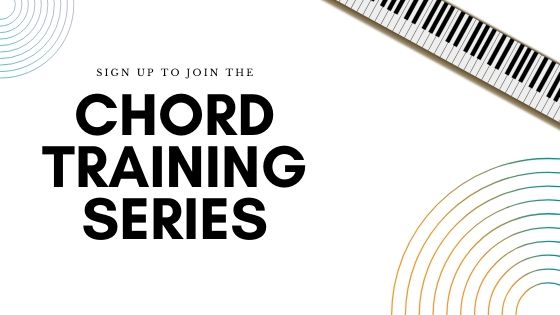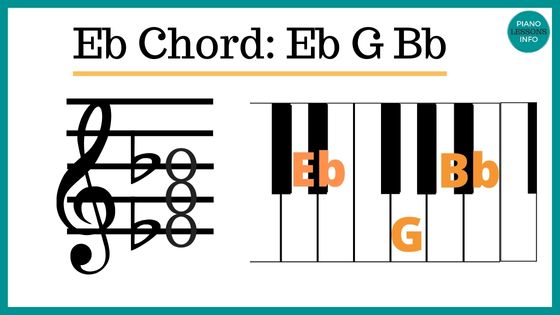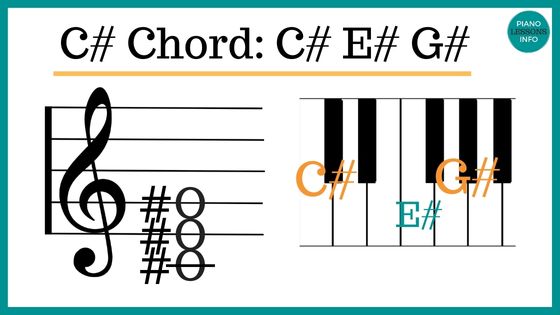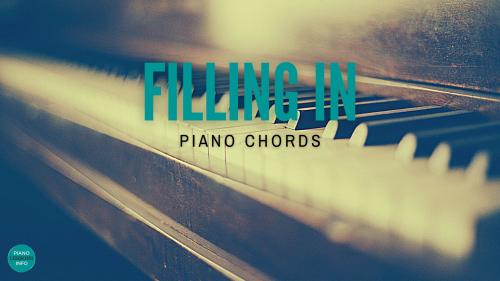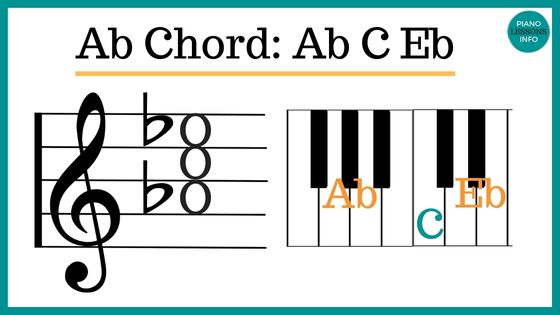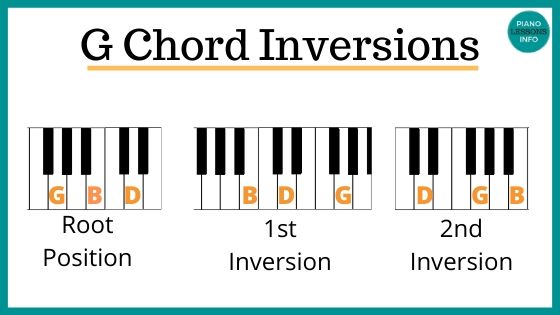D Major Chord on Piano (D Chord)
The D major chord is one of the first chords with sharps everyone learns on piano. It's really common to see and a great one to learn. This is also called a D chord.
Here you'll find a D chord diagram, learn the fingering, notes, inversions and some basic theory for the D major chord. You can also find out what D/F# and D/A means.
D Major Chord Notes
If you see a D chord, it means to play the notes D, F# and A.
The D chord is a major chord and all major chords are written as just a letter name for their chord title. (Some might include a sharp or a flat as well.)
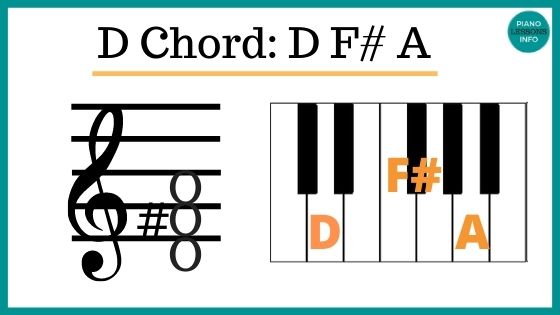
You can play the D, F# and A in any order, in any hand. Generally, D needs to be the lowest note you play - like in your left hand.
There are 3 main options for how to play this chord.
1. Play all the notes of the D chord in your right hand and the bass note, D, in your left hand.
2. Play the notes of the D chord in your left hand and possibly melody in your right hand.
3. Play the D chord notes and melody in your right hand and the bass note in your left hand.
How to Play D Major Chord on Piano
This video will show you how to play the D chord and you'll also be able to hear what it sounds like.
D/F# Piano Chord
If you see D/F#, the F# is referring to the bass note.
On the piano, this would mean to play F# in the left hand as the lowest note. D and A would come above.
So what you can do is play the notes of the D chord anywhere you want but play F# as your lowest note.
D/A Piano Chord
If you see D/A, it is a slash chord and means that you need to play A as your bass note (instead of D).
On the piano, this would usually mean to play A in the left hand as the lowest note. D and F# would come above.
Where The D Chord Comes From (Theory)
The D chord or D major chord comes from the D major scale.
The D major scale and the key of D has 2 sharps: F# and C#.
The notes of the scale are D E F# G A B C# D.
A major chord is the 1st, 3rd and 5th notes of the major scale which is why this chord has the notes D, F# and A.
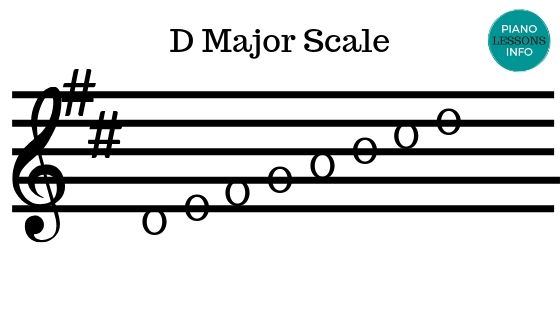
Which Fingers Do You Use?
For any major chord in the root position (with D at the bottom in this case), you can use your thumb, middle finger and pinkie. In piano, these are finger numbers 1, 3 and 5.
These fingers will change as you play the chord in different positions but in the beginning, this is a great fingering to start with.
D Chord Inversions
When you play chords in inversions, it means that you play them in standard positions with specific fingering. And you can practice these. (More on inversions and practicing them here.)
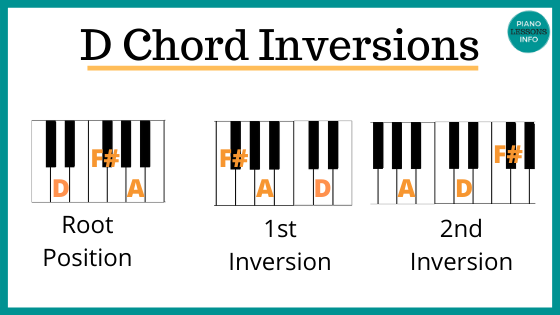
You can play the D chord on the piano in different positions. There are 2 other standard positions or inversions.
To create an inversion, basically it means taking a note from the bottom of the chord and playing it on the top.
D major chord inversions:
Root position: D F# A
First inversion: F# A D (Fingers 1 2 5)
Second inversion: A D F#
Ready to learn more about piano chords? Start by getting the free chord chart below.
Free Download:
Ultimate Chord Cheat Sheet
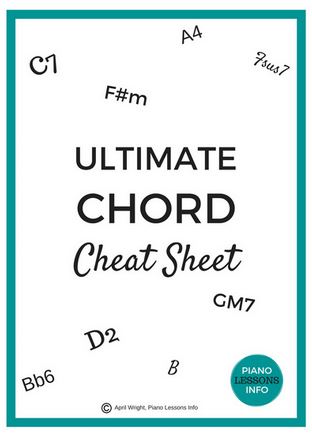
Subscribe below and get free access to the (printable) Ultimate Chord Cheat Sheet.
For more on specific chords, you can visit the Piano Chord Charts here.
FAQ for the D Major Chord
What is the D major chord?
What is the D major chord?
The D major chord is a three-note chord made up of the notes D, F#, and A. It's a major chord built on the root note of D and has a bright and positive sound.
How do I play the D major chord on the piano?
How do I play the D major chord on the piano?
To play the D major chord:
- Place your thumb (1st finger) on D.
- Place your middle finger (3rd finger) on F#.
- Place your pinky (5th finger) on A.
What's the difference between D major and D minor?
What's the difference between D major and D minor?
The D major chord consists of the notes D, F#, and A. The D minor chord, on the other hand, uses the notes D, F, and A. The difference is in the middle note; F# gives the D chord a major quality, while F gives it a minor quality.
D minor is also in a different key.
Can I use the D major chord in a chord progression?
Can I use the D major chord in a chord progression?
Yes! The D major chord is commonly used in many chord progressions, especially in the key of D major and G major.
A popular progression is D, G, A, where all chords are major.
You can also try:
D A Bm G.
Or
G C Em D
I'm having trouble playing the D major chord. Any tips?
I'm having trouble playing the D major chord. Any tips?
If you're finding it challenging to play the D major chord:
- Ensure your hand is relaxed. Wrist is straight (ish) and not too high or leaning on the keyboard.
- Try playing each note separately to ensure you're pressing the keys correctly.
- Remember to use the correct fingers for each note.
- Practice transitioning to and from the D major chord to improve fluidity.
Note that sometimes it takes a little bit for all your fingers to cooperate and go down at the same time. Sometimes more fingers will go down than you want! Just keep practicing and it'll come together. It always does.
Recent Articles
-
Piano Notes Chart
Nov 20, 23 10:21 PM
Find a piano notes chart for treble clef and bass clef notes as well as the different types of notes. -
D Chord on Piano + Diagram, How To & Theory
Oct 24, 23 12:20 AM
Learn how to play the D chord on piano with diagram, fingering, D/A, D/F# and a theory explainer. -
Diminished Piano Chords: Chart & How to Make Them
Oct 09, 23 09:23 PM
Learn the different diminished piano chords and how to make them. Here you'll find both a diminished chord chart and an explanation.
- Home
- 14 Day Chord Challenge
- D Chord
Free Download:
Ultimate Chord Cheat Sheet

Subscribe below and get free access to the (printable) Ultimate Chord Cheat Sheet.



